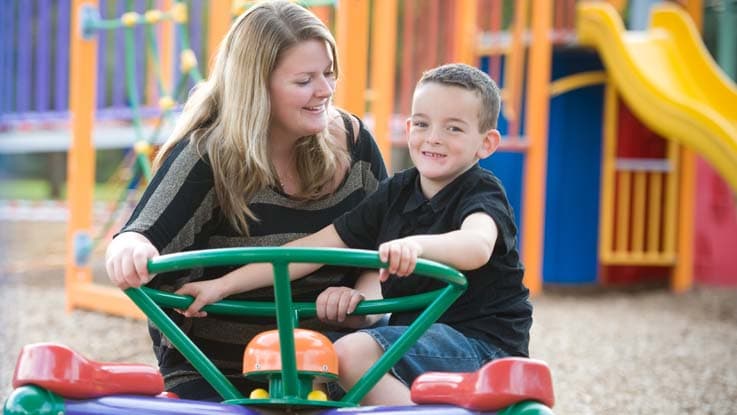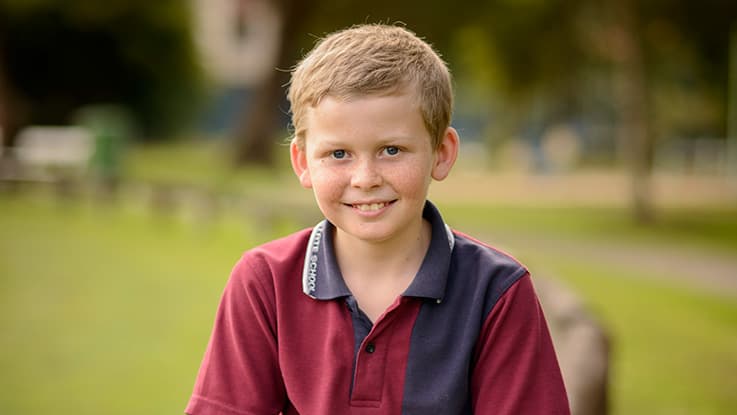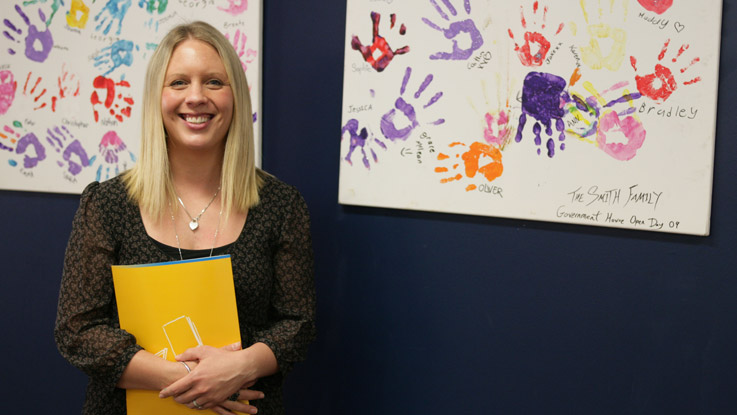
‘I’m not going to sugar coat it’: meet 2021’s most resilient school leavers
For some young people, finishing school in a global pandemic was made more difficult by the compounding effects of disadvantage.
Sometimes it feels as though everything happens at once. In year 12, as Sara worked to finish high school during the second year of a grinding pandemic, allied forces withdrew from Afghanistan and, in the vacuum they left, eased the path for the return of the Taliban. Sara was born in Afghanistan and arrived in Australia in 2010 at the age of seven, speaking no English.
It was overwhelming and stressful, especially during Covid and finishing school,
“To be honest, it was challenging. It affected not only my mental health but my friends who are also Afghan and even the non-Afghans. But we just had to pull through because it was the last year and everyone wanted to do their best.”
At this scale, no other graduating class in a century has had to endure so much for so long. For students such as Sara, supported by the Australian education charity for disadvantaged kids, The Smith Family, these obstacles have come on top of poverty or disengagement that has been allowed to bloom for so long.
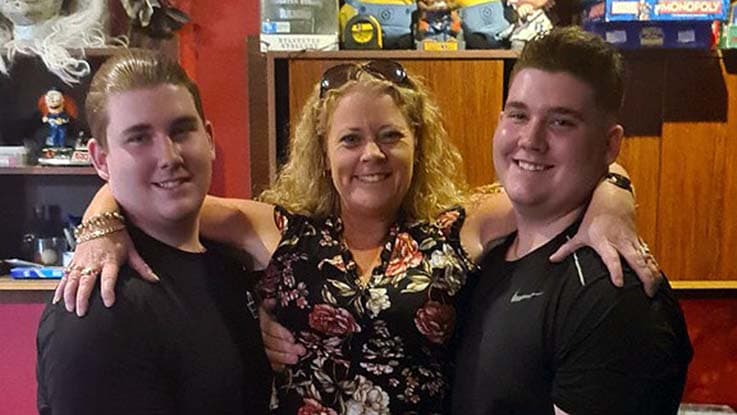
Layne and Bayler
“When the helicopters come around it gets a bit annoying,” he says. “It's been hard but also easy, if that makes sense? It is what it is.”
We didn't really tell that many people that we were getting any help, but the amount of stuff they have done for us, like just getting clothes that fi t because we're big kids,
Each obstacle has a multiplier effect and for any child transitioning from school to the workforce or higher education the accumulation of disadvantage can weigh heavily.
Bayler, 18, wants to be a mechanic but in the meantime is dealing with a birth defect that results in his kneecap, or patella, popping out during minor exercise. The tendon is in the wrong place.
With previous injuries to my knee I've had terms off school and needed extra support, which was easier to get when things were face to face,
For Maddie, who lives south of Brisbane, the challenges of finishing school in a pandemic are clear but she nevertheless exudes optimism.
“You know, things like lockdown would happen at the snap of a finger and suddenly we have to learn how to do things that teachers would normally show us themselves, especially with maths, which I am terrible at.”
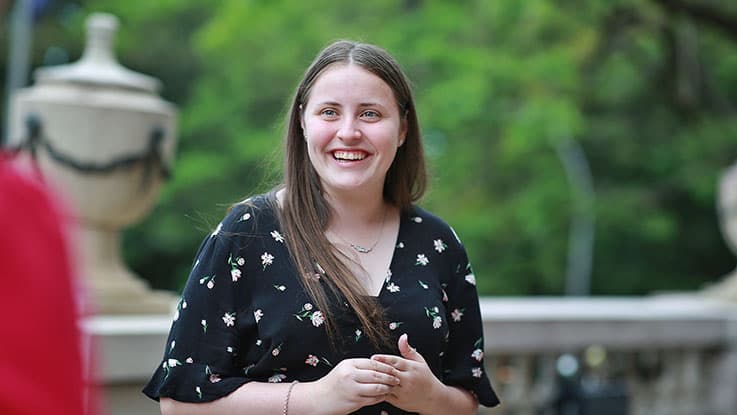
Maddie
I'm not going to sugar-coat it and say it was the perfect year 12 life. It had its obstacles that we had to learn to overcome or just be resilient,
“In a workplace or a school place, your brain is structured to be in that learning or working mindset, but when I am at home it makes me feel more inclined to relax,” Maddie says. “You have to force yourself to remember, ‘No, you are in school time now; you actually have to do some schoolwork.' ”
Maddie is the youngest child in her family and was the only one at home this year. She has been with The Smith Family support program Learning for Life since year 8.
It has been honestly amazing. At the start a lot of it was financial help, but we didn't realise the added things that came with it, like little workshops over the holidays,

Jaye
This year is the end of a little bit of a phase for me, where I am going to move from this suburb and the high school on its own, knowing the paths. I'll probably know the paths in a different suburb, where I might be living or going often, like with my university travels,
By his own account, Jaye lives in a tiny and rundown public housing home in a suburb marked by high rates of poverty. He is glad that Covid-19 had little interruption to his schooling in Western Australia, and he finished the year as school captain. Jaye, who is still 17, won multiple awards for academic achievement and community spirit. He is wise beyond his years.
“I don't want to get emotional but, like, I don't invite friends over to the house because it's a mess, but that's where I live. I've come out of the rags, I've worked hard and with the help of The Smith Family and my brothers and my family and although we don't get along sometimes because of how crammed in [we are], we are proud of each other.
“Sometimes people don't understand it and people shy away but it means a lot.”
Last year, in a real-time economic experiment, the federal government effectively doubled the unemployment benefit and lifted other welfare measures in a stimulus-linked move that proved people can be lifted out of poverty. It was unwound almost as swiftly as it began, thrusting hundreds of thousands back into crisis. In the absence of an effective safety net, charities such as The Smith Family are left to fill the gaps.
Students such as Jaye, Sara, Layne, Bayler and Maddie are proof of what even a modest investment can do for people in the most challenging two-year period for any school leavers in modern history.
The future is hard to predict, of course, but it is a little easier to imagine for these kids. Jaye, for example, wants to be a marine biologist.
“Even though I'm seasick, so that doesn't help,” he says. “I suppose I'll get used to it.”
By Rick Morton, Author and Senior Reporter for The Saturday Paper. First published by The Saturday Paper, 11/12/21.

